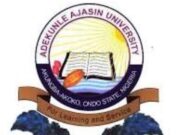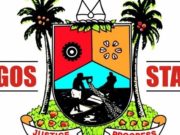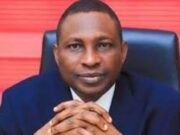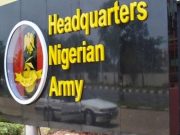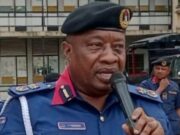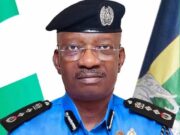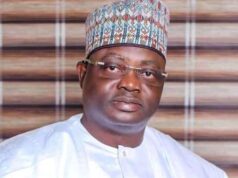The Oyo State Sector Commander of the Federal Road Safety Corps (FRSC), Commander Rosemary Alo was a guest on our Radio Show, Parrot Xtra/Ayekooto on Radio, anchored by Olayinka Agboola on Splash 105.5FM, recently. During the interaction, she gave an insight into how bad attitudes of drivers can lead to road accidents and what she intends to do to reposition Oyo FRSC command among many salient issues… Excerpt
Can you briefly introduce yourself?
I went to the University of Ibadan. I joined the Federal Road Safety Corps in 1993 and I have served in different offices. I was in Abuja as the Secretary of the Management of FRSC before I was posted to Oyo State Sector Command.
Can you give insight into the functions of FRSC?
FRSC duties include clearing obstructions on the road and ensuring that crashes are reduced on the road. Our duties include enlightening the public on road safety measures, issuance of drivers’ license and producing number plates.
Sometimes, the officers of the FRSC are biased with their road inspection; they leave Micra drivers who don’t use their seatbelts and carry overload, but are always on the neck of private vehicles who are on their way to work, does this really tally with the kind of assignment the constitution gave the FRSC?
Enforcement is part of the assignment of FRSC; it has to do with patrolling and ensuring that people comply with the traffic laws, so if you are out there and the officers of the FRSC are asking for your driver’s license and others, it is part of their duties. If they cite any infraction on the road, it is their duty to book an offender who contravenes the traffic rules. They are only acting under the ambience of the assignment given to them. With that, they have not gone outside of their confines.
On the issue of overlooking some set of drivers on the road; that should not be. We always talk to our people to be objective when they are doing their work, if they see people who are overloaded or contravened the law, they have to stop and book them. Regardless of whosoever the person is, nobody is above the law. If anyone contravenes a traffic law, such must be booked!
Although, most times, it might not be everybody that will be booked, because stopping a vehicle does not always result in booking. Sometimes FRSC officials might stop a driver to enlighten him on what to do and not to do.
In addition, we perform safety checks to advise motorists on what to do and we equally encouraged them to change their tyres if they are bad.
What are the measures you are putting in place to curb all these vices on the road?
Road safety is the duty of every citizen; it is a fight we all have to join hands together to fight, not just leaving it to the FRSC. When people see any act of insubordination by the drivers, let them report to us, if a driver wants to carry two passengers in the front seat of the vehicle, refuse it, this is how we can win as a country. Progressively, we have come up with a certain secret unit, which we employ to monitor all activities on the road, either by the road users or by our officers. The citizens also can be our eyes out there, bringing those reports to us in our offices.
What about the commercial motorcyclists or Okada riders, how many passengers are they expected to carry?
The Okada rider is expected to carry just one passenger. Also, the law that stated that every Okada rider should use a helmet is still valid but what I discovered about our people is that they don’t want to be law abiding, they love to be forced before they obey the law.
If we decide to be so strict with this particular law now, everyone will start using helmets, but the moment we state other rules, they dump the former like it never existed.
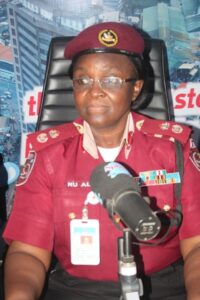
Helmets are expensive now, how can an Okada rider afford that?
What we need to know is that there is nothing too expensive when we are talking about the safety of one’s life, even if they sell the helmet at 25,000 naira, if the money is placed side-by-side with human life, what would anyone pick? Life of course.
If they say that they can’t afford it, they should also know that it is only the living that fights for survival, it is only the living that rides motorcycles. I remember a particular road accident while I was in Badagry, Lagos State as Head of Operations. This particular Okada rider suddenly lost control and was speeding towards the road demarcation iron and he eventually hit his head on it. If not because he used his helmet, he would have died. The helmet is important.
What we intend to do is to go to their various parks to educate them about the benefits of using a helmet and to enlighten them on the importance of using the helmet while riding because it is for their safety. Most of the riders have it without using it as they think it is irrelevant.
Furthermore, they need to know that using a helmet is a law that should be kept. We will talk to the Chairmen of the Micra drivers association as well; they just need to know that their safety is important to us.
Is there anything the government can do to help the transport union concerning this?
There have been times that some Non-Governmental Organizations have given free crash helmets to motorcycle riders, but the bone of contention has always been that many of them will still not use it. Most of them know the usefulness of the helmet but it has to do with their attitude.
How do we change the attitude of our people to act positively?
The attitudinal change we are talking about has to do with self-examination. Because, if the road is bad, they complain that it is causing accidents, if the road is in good condition, they start speeding, which might lead to more accidents. The thing is that whether the roads are bad or good, crashes will still occur because of individual attitudes; it has to do with their attitude on the road.
What are the roles of the FRSC in this respect?
We have played and are still playing many roles and they include appealing to people’s conscience; that is why we engage in public enlightenment programs, especially now that it is raining. We keep telling people, don’t speed on the road, there is a lot of water on the roads and your tyres might not be able to grip the road as they should. Any mistake like this can make the vehicle veer off the road. Therefore, we keep campaigning and appealing to people’s conscience just for this attitudinal change and encouraging them to adhere to the rules that guide driving on the highway. They should not exceed the speed limit but drive with common sense.
In terms of training and retraining of your people, what are the plans for this?
We regularly conduct training programs for our people. We have a weekly program on Wednesdays tagged in-house programs, where we discuss various topics within the command. Outside this, we also have other training programs in our training institutes for Marshalls, Inspectors and Officers.
What is your advice for a typical Nigerian girl child?
I would like to let them know that education is key. Recently, I was advising one of my staff who happens to be a female that came in as a Road Marshall not to be complacent with her rank but rather strive to move forward. That is how all girls should be, never to be stagnant.











